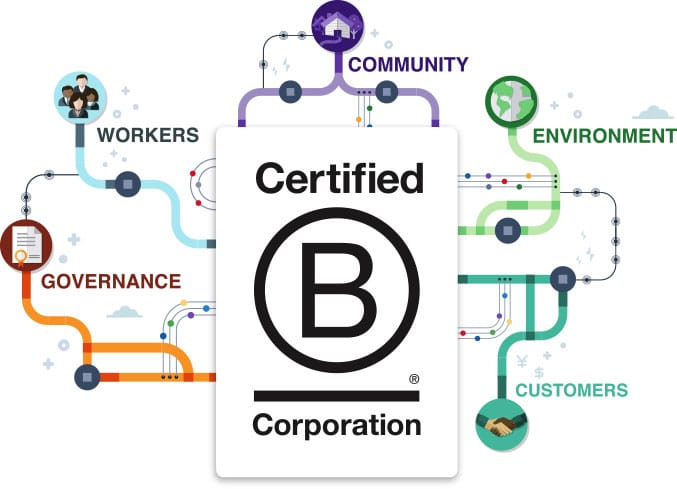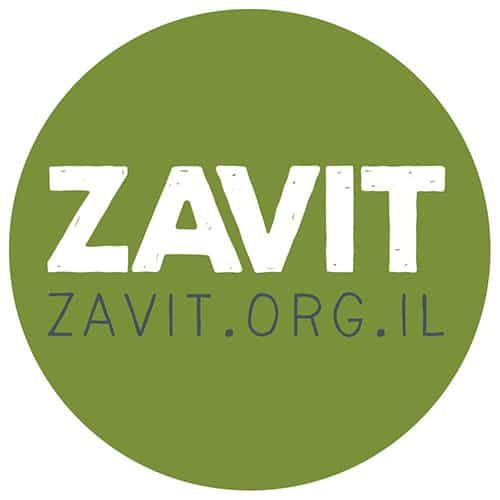 bcorporation.net
bcorporation.net In recent years, more than 3,900 companies around the world have received B Corps certification, a badge awarded to businesses and organizations for sustainable business performances. But only four are Israeli companies. Why are they the only ones and what are they expected to gain from this move in the near future?
In recent months, our lives have become gradually more dictated by marked certificates due to the ongoing COVID-19 pandemic. Whether it is the purple certificate granting jobs and businesses to operate in the shadow of the corona crisis, or the green certificate allowing vaccinated persons to return to businesses and indoor establishments, our societal conduct has had to adapt to the changing times. However, acquiring proper credentials in order to do certain things is nothing new.
One innovative standard that is gaining momentum around the world today is B Corporation, or B Corps, a certification awarded to profit businesses and organizations that meet higher social and environmental performance targets among other sustainable principles. Despite more than 3,900 companies and organizations from 74 different countries receiving the certification, only four Israeli companies appear on the list. Does this make many Israeli companies appear as non-environmental, or do sustainability issues simply not interest them?
B Corps Players
The B Corp certification is awarded to companies that meet a wide range of standards related to their social and environmental conduct, including the use of renewable energy, monitoring waste production, integration of women, minorities, and people with disabilities, community involvement, public transparency and more. The certification is given by B Lab, a non-profit organization established in 2006 for this purpose.
To qualify for B Corps status, a company must complete lengthy questionnaires that contain a wide range of specific issues on various aspects of its conduct and provide evidence that their answers are correct and not misleading. Receipt of the certificate is conditional on an annual fee of $1,000 or more, depending on the volume of sales of the business, and the certification must be renewed every three years.
The list of companies that have received the certification include, among others, well-known names such as the ice cream company Ben & Jerry’s, the online fundraising platform Kickstarter, and the clothing company Patagonia.
“The B Corps award is given out of a desire for people to care about the social and environmental aspects of company operations,” says Liat Zvi, an environmental strategy expert. “The certification also creates visibility and a positive image for the consumer to show that companies are doing the right thing.”
As mentioned, there are only four entities that have been B Corps certified in Israel: UBQ Materials, which produces environmentally friendly plastics from household waste for industrial use, Shamaym, which provides teams with an organizational learning interface to improve work performance, and two impact investment funds that aim to create positive sustainable outcomes alongside profit, 2B-Community and Impact First. In this context, it should also be noted the New York digital insurance company, Lemonade, which does not operate in Israel but was founded by Israelis, was also B Corps certified.
B-Cause it’s Good for Business
According to the Israeli companies and organizations that have received the award, there are benefits to having the B Corps status.
“This certification conveys to customers, investors, and stakeholders the message that this is a company that is absolutely committed to sustainability,” said Rachel Malka Bar, Vice President of Sustainability at UBQ Materials. “It gives customers and other parties confirmation that they can trust what we say, because aspects of sustainability in our operations have been carefully examined at the organizational level.”
“I am sure we benefit from the certification because it is given by a completely objective body, which is very hard and rigid, which tests the organization according to many parameters and gives it its stamp,” adds Shelly Dvir, Strategy Manager at 2B-Friendly from the 2B-Community.
According to Nina Rauch, Director of Social Impact at Lemonade, the B Corps certification enriches the company’s image through the eyes of consumers worldwide.
“I get a lot of supportive emails from clients on the subject, and I see a lot of reactions on social media that because we are in B Corps, it influences our clients’ choices and encourages them to choose us,” she says. “We can totally see from our customers that being a good social company is good for business.”
Israel is Not a Priority
If B Corps certification is so great for business, why are there only four companies and organizations in Israel that are classified as such?
“This is a very difficult road,” says Dvir. “B Lab is very much focused on New York and the United States, and they do not have an international department or a qualified Israeli entity to facilitate those connections. Getting an answer from them involves blood, sweat, and tears—you almost have to force them to serve you.”
“The questions that need to be answered in order to get the certification are worded in very professional English and understanding it can be very difficult, especially for those who do not speak English as their native language,” adds Cecile Blilious, founder and former director of Impact First. “Israeli companies need help to answer them. They cannot do it alone, but there is no one to ask for help.”
According to Dvir, the certification requirements are not necessarily adapted to Israel either. “For example, B Corps examines things that are taken for granted in Israel, such as maternity leave. In the United States maternity leave is not guaranteed, but here it’s legal.”
“Israel is not a priority for B Lab, so they did not make any effort to enter the local market and become better known here,” says Blilious. “It did not interest them.”
According to Dvir, another factor that is holding back Israeli companies from becoming B Corps certified is the question of whether the effort will even be worth it at all.
“From what I understood from many Israeli companies that I spoke to; they do not see value in adopting the certification. Israeli consumers do not reward companies that have B Corps certification—it does not cause them to direct their consumption to one company over another,” she says. “Most local consumers do not know what B Corps is at all.”
According to Blilious, in various parts of the world, companies are choosing to become B Corps certified in order to receive funding from impact investors who are familiar with the certification—but not in Israel.
“The world of impact investments has not yet been so adopted in Israel. Israeli companies are not looking to raise money from impact investors, so it is not entirely clear to them why they would bother and try to achieve B Corps status,” she says.
Consumer Power
In Blilious’s opinion however, despite all the difficulties, commercial companies should make the effort and apply for B Corps status.
“The wave of impact investments is growing stronger everywhere today. More and more investors will demand B Corps certification, and Israeli companies will slowly discover that they are unable to raise money without them,” she says.
“Israelis must enter the game. You cannot continue to think that it won’t reach us—it is already coming.” According to her, B Corps should be treated like ISO standards – a series of internationally accepted standards for organizations, technologies, and products upheld by many companies and required by various governments. “B Corps is the certification that caught on, and it’s worth it to be in the same club as everyone else,” she says.
For her part, Dvir believes that a local Israeli certification should also be created, one that would be specifically adapted to Israel. “We tried to establish the 2B-Friendly benchmark, which includes considerations for environment, sustainability, and accessibility issues, etc.,” she says.
Currently active is a separate Israeli benchmark called the green municipal badge, which is given by the Tel Aviv-Yafo municipality for companies and organizations that abide to criteria concerning waste reduction and both energy and water savings.
According to Dvir, however, in order for such certifications to succeed and in order for businesses to operate more sustainably, it is necessary to raise awareness of the issue among consumers. “If there is a strong consumer force for implementing proper social and environmental conduct, businesses will adapt,” she concludes.
ZAVIT – Science and Environment News Agency






















 More news and opinions than at a Shabbat dinner, right in your inbox.
More news and opinions than at a Shabbat dinner, right in your inbox.